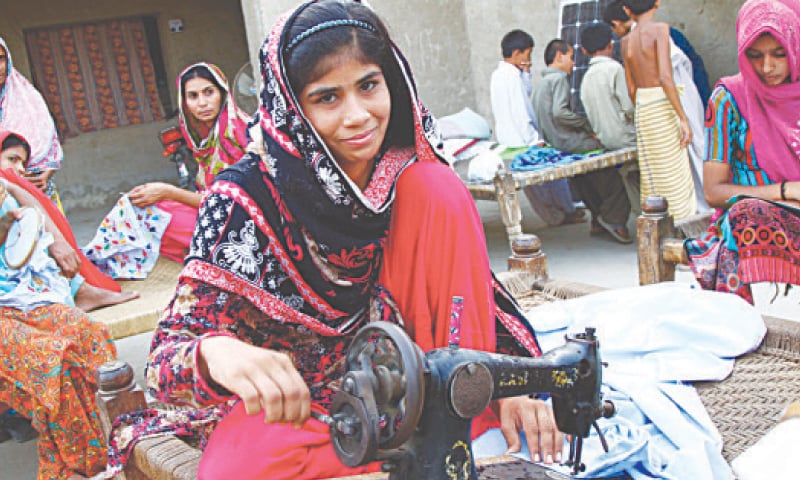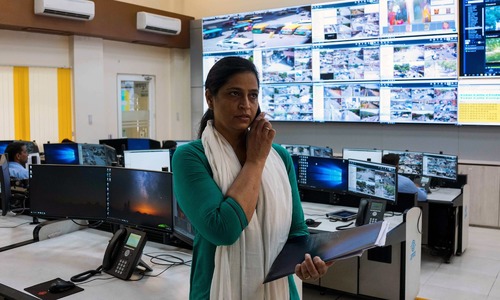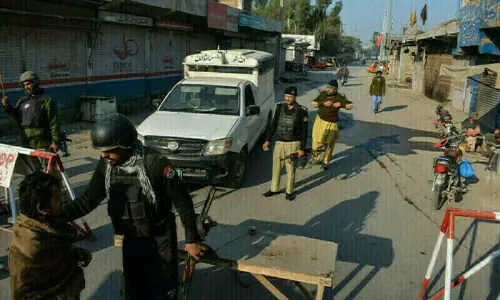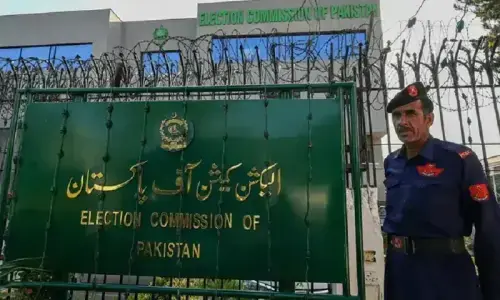Social biases, slow implementation of female-friendly legislation and a high cost of choosing to challenge the archaic power framework did not stop women of Pakistan from pursuing their passion and fending for families.
Following the lead of resistance icons like Nobel laureate Malala Yousafzai, rape survivor Mukhtaran Mai and the brave human rights activist Asma Jahangir, they are marching on, beating odds, contributing to home-making and nation-building, striving for wage parity, exercising right to education, breaking glass ceilings and transforming society in the process.
The compelling business case for a gender-focused approach to investment decisions in public and private sectors has nudged the government and companies to take interest in applying a gender lens. The slow progress towards gender parity, however, hammers into the need to do more.
The female participation and visibility in the economic mainstream have persistently been increasing in Pakistan. Be it the factory floor, office, education, research, health, housekeeping, administration, entertainment, hospitality, banking, IT, marketing, media, grooming or politics, female presence is noticeable. Conservatism cannot override economic compulsions for too long. Needs and aspirations are forcing families to make adjustments and allow their women to take jobs.
The gender gap may be closing, but women are still marginalised in the labour market. A gender-equal Pakistan continues to be a distant dream
The gender gap may be closing but women are still marginalised in society and the labour market. A gender-equal Pakistan continues to be a distant dream. The advancement of women in positions of power (seats in parliament or boardrooms) is often dependent on the whims and patronage of notable male relatives.
A gender gap is any disparity between men and women often rooted in social and cultural norms. It creates hurdles for growth and development by limiting women’s access to resources and opportunities and reinforces toxic power imbalances in society.
The gender-aggregated economic data is lacking and the current national dataset undermines the scale and value of the contribution of half the population towards growth and development. Mothers, working jobs or not, are first ones to rise and last ones to sleep while juggling their roles and toiling hard to match family expectations. The disproportionately higher involvement of women in the informal and rural economy also works against getting their contribution to GDP quantified transparently.
The corporate sector regulator, Securities and Exchange Commission of Pakistan (SECP), in a 2020 report titled “Women on Boards” acknowledged that the lack of gender diversity on companies’ decision-making forums. It notes, “There is an increased global focus on creating boards that are more gender diverse… In 2017, Pakistan also introduced measures aimed at increasing such diversity.”
The report asserts that data collected in 2019 indicates the positive impact of regulations introduced in this regard.
It observes, “The increased gender diversity also seems to have brought with it positive effects on the financial performance of companies. Nonetheless, Pakistan still lags behind compared with the rest of the world… can take additional measures which will bring it (on a) par with the world.”
Their preoccupation with the hectic pre- and post-Senate election politics did not permit PTI leaders to share their opinion on the subject.
Several prestigious global forums tracking gender disparity place Pakistan in lower rungs. More disturbing is the fact that the country has slipped on the gender gap rankings since the restoration of democracy in 2008.
The Global Gender Gap Index 2020, published by the World Economic Forum, ranked Pakistan 151st among 153 nations assessed. It was 134th in 2010 and at 126th in 2007.
The UNDP Gender Development Index 2020 places Pakistan at the 154th position in 189 countries. It was at the bottom of the category of countries bracketed in ‘medium human development’ and trailing other South Asian neighbours by a distance. Sri Lanka at the 72nd position is ahead of others, including India that is ranked 131st.
Commenting on its poor placement and slide on global ranking charts, Dr Durr-e-Nayab, a senior economist associated with the Pakistan Institute of Development Economics, said, “Perhaps other countries have made more concerted efforts towards removing barriers restricting the advancement of women. There is sufficient evidence based research to confirm that gender parity is crucial for improving the pace and quality of growth and development.”
Another economist barred from going public with his views by his company mentioned multiple instances of gender discrimination in the labour market. “Gender-based wage disparity is common but then what do you expect when in the current day and age we have a big pool of unpaid women workers in rural areas? Anyone who cares can dig for details but unfortunately stories of these voiceless victims are too harrowing to be told and their masters probably are too well-connected to be exposed.”
Nazish Shekha, an analyst who has been engaging with members of the Pakistan Business Council to sensitise them on the gender dimension of the corporate culture, was hopeful about meaningful changes going forward. She told Dawn that out of 140 PBC members, 27 per cent have family-friendly policies and onsite day-care facilities or benefits for female workers to avail one. The labour laws of Pakistan obligate companies that employ over 10 women to provide this facility.
“There are very few female CEOs currently but many forward-looking local and foreign companies are focusing on improving the gender balance in their workforce by offering incentives, training programmes and making the environment friendlier for female workers.”
She mentioned the study of a researcher friend who found that switching to smartphones was liberating for working-class ladies.
Published in Dawn, The Business and Finance Weekly, March 8th, 2021



































